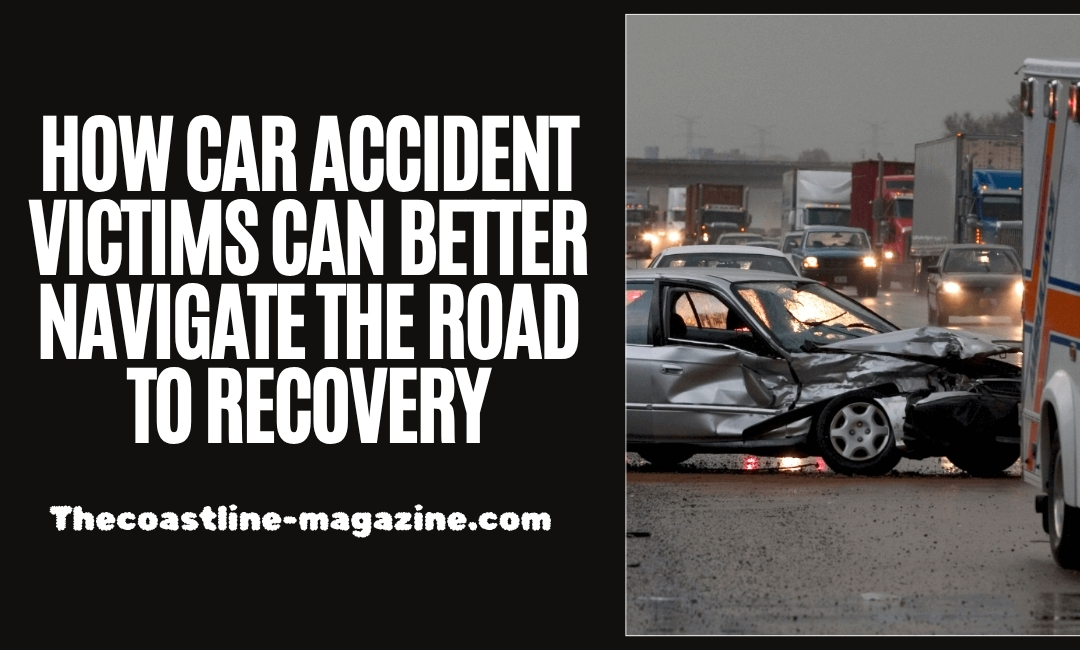Key Takeaways
- Immediate medical attention is crucial, even if injuries seem minor.
- Documenting the accident scene and gathering evidence can strengthen legal claims.
- Understanding your legal rights and seeking professional assistance can aid in securing fair compensation.
- Addressing emotional and psychological impacts is essential for holistic recovery.
- Engaging in physical therapy and rehabilitation can expedite physical healing.
Table of Contents
- Immediate Medical Attention
- Documenting the Accident Scene
- Understanding Legal Rights
- Seeking Professional Legal Help
- Addressing Emotional Trauma
- Engaging in Physical Therapy
- Navigating Insurance Claims
Recovering from a car accident involves more than just physical healing—it can also mean dealing with emotional trauma, financial stress, and complex legal procedures. Victims often find themselves overwhelmed by medical appointments, insurance paperwork, and questions about their rights. Creating a clear recovery plan, seeking proper medical care, and understanding available support systems can make this arduous journey more manageable.
Legal concerns often arise when fault, damages, or coverage are disputed. In such cases, consulting with an Amarillo TX personal injury lawyer can help victims better understand their legal options and how to protect their interests. Navigating these challenges with clarity and informed guidance allows individuals to focus on healing while addressing long-term impacts. The road back may be long but becomes far more manageable with the proper steps and support.
Immediate Medical Attention
After a car accident, your health and safety must come before anything else. It’s common for accident victims to underestimate or overlook injuries in the shock of the moment. However, many serious health concerns—including concussions, internal bleeding, and spinal injuries—may not present immediate symptoms but can worsen rapidly without intervention. Seeking a comprehensive medical evaluation right away is critical not just for your protection, but also for creating an indisputable medical record. This documentation is compelling evidence should you pursue compensation through insurance or legal action later. Always follow medical advice regarding treatments and follow-up visits, as documented compliance strengthens any future claims and ensures you catch lingering or delayed symptoms before they escalate.
Documenting the Accident Scene
Gathering and preserving evidence right after an accident can make all the difference in how your claim is resolved. If you are physically able without putting yourself in further danger, use your phone to take comprehensive photos and videos of all vehicles involved, their positions, visible damages, road conditions, skid marks, and weather or lighting that may have contributed to the crash. It is equally important to note the positions of road signs and signals that could clarify fault or negligence: exchange names, contact details, insurance, and driver’s license numbers with other drivers. Ask witnesses for their accounts and contact information—they can provide unbiased perspectives, reinforcing your version of events. Thorough documentation, including police reports and medical records, creates a timeline and factual basis for your case, significantly improving your attorney’s ability to advocate for you.
Understanding Legal Rights
Awareness of your legal rights is one of the most empowering steps after a car accident. Victims are often entitled to compensation for a range of losses, not just immediate medical bills but also future medical expenses, lost wages due to time away from work, reduced earning capacity, pain and suffering, and even property damage. The laws governing fault, liability, and available compensation vary widely depending on location. Understanding deadlines for filing claims—statutes of limitations—and required documentation reduces the chances of administrative errors and forfeiture of your rights. Empower yourself by familiarizing yourself with local laws or collaborating with a skilled attorney to ensure your best interests are upheld every step of the way.
Seeking Professional Legal Help
The aftermath of an automobile accident can be overwhelming, especially as you attempt to manage your recovery while handling insurance paperwork, legal documentation, and interactions with other involved parties. This is where the assistance of a knowledgeable personal injury lawyer becomes invaluable. An attorney’s experience with similar cases brings much-needed expertise to negotiations, investigations, and potential court proceedings. Personal injury lawyers are adept at calculating realistic damage estimates, handling correspondence with insurers who may attempt to minimize payouts, and ensuring your side of the story is effectively represented. Legal professionals also remove the emotional burden from your shoulders, allowing you to focus on healing while they work toward securing the compensation you deserve. Opt for a lawyer with direct experience in car accident cases, as specialized knowledge is often essential for maneuvering through complex insurance tactics and legal hurdles.
Addressing Emotional Trauma
The non-physical impact of an accident is often underestimated but can be just as debilitating as physical injuries. Feelings of anxiety, depression, mood swings, post-traumatic stress, and even fear of returning to driving are all common after a collision. These emotional responses, though typical, can interfere with daily functioning and slow the recovery process. Seeking professional mental health support—such as counseling, cognitive behavioral therapy, or support groups—provides a structured setting to process these emotions, explore coping mechanisms, and rebuild confidence. Resources such as the National Institute of Mental Health’s PTSD guidance can offer essential insights on recognizing and addressing post-accident trauma. Leaning on supportive friends, family networks, and local support groups is equally beneficial and creates a nurturing environment for emotional restoration.
Engaging in Physical Therapy
Physical rehabilitation often plays a central role in restoring mobility, function, and strength following accident-related injuries. Treatment and recovery plans are highly individualized depending on the severity and type of injury, whether it involves whiplash, herniated discs, broken limbs, or muscle strains. Physical therapy sessions typically include guided exercises, manual therapy, pain management strategies, and sometimes occupational rehabilitation to help individuals return to work safely. Sticking to your prescribed regimen, including home-based exercises, can make a measurable difference in how quickly and thoroughly you recover. Furthermore, regular check-ins and progress notes by therapists act as continuous medical documentation—a resource that can support your insurance or legal claims should your case require proof of ongoing need or medical compliance.
Navigating Insurance Claims
Dealing with insurance companies after an accident can be one of the most complicated and stressful parts of the recovery process. Insurers often have teams dedicated to minimizing payouts, sometimes offering rapid settlements that may not fully account for future medical costs, lost income, or ongoing pain. To protect your interests, avoid making verbal or written statements about the accident without consulting your attorney or understanding the implications. Do not sign any releases or accept offers until you clearly understand the totality of your damages.

